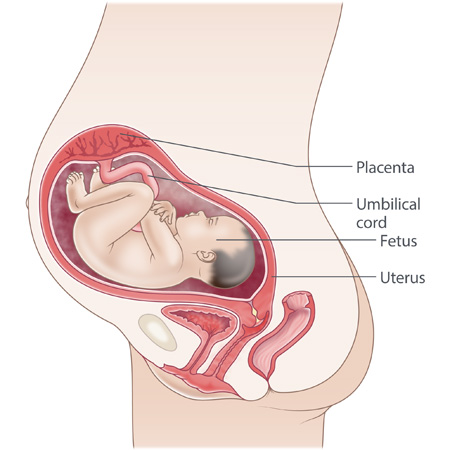
Pregnancy at 30 Weeks: A Comprehensive Guide
Introduction
Pregnancy is a remarkable journey filled with physical, emotional, and hormonal changes. At 30 weeks, you have reached the third trimester, and your body and baby are preparing for the grand finale. This article provides a comprehensive guide to the 30th week of pregnancy, covering fetal development, maternal changes, common symptoms, and tips for a healthy and comfortable pregnancy.
Fetal Development
By week 30, your baby is approximately 15.5 inches long and weighs about 3 pounds. The fetus is now fully formed, and its organs are maturing rapidly.
- Brain Development: The brain is rapidly developing, and the fetus can now respond to sounds and light.
- Lung Development: The lungs are continuing to mature, and the fetus is practicing breathing movements.
- Bone and Muscle Development: The bones are hardening, and the muscles are becoming stronger.
- Sensory Development: The fetus can now hear, see, and taste. It may also be able to recognize your voice.
- Movement: The fetus is very active and may be moving around frequently.
Maternal Changes
As your baby grows, your body undergoes significant changes to accommodate the pregnancy.
- Uterus: The uterus continues to expand, reaching your rib cage. This can cause shortness of breath and heartburn.
- Abdomen: Your abdomen is now noticeably enlarged, and you may have stretch marks.
- Breasts: Your breasts are preparing for breastfeeding, and they may be larger and tender.
- Weight Gain: You may have gained about 20-25 pounds by this point.
- Hormonal Changes: Pregnancy hormones continue to fluctuate, affecting your mood, energy levels, and sleep patterns.
Common Symptoms
At 30 weeks, you may experience a range of symptoms, including:
- Back Pain: The weight of the uterus can put pressure on your back, causing pain.
- Leg Cramps: Leg cramps are common due to increased blood flow and pressure on the nerves.
- Constipation: Pregnancy hormones can slow down digestion, leading to constipation.
- Frequent Urination: The growing uterus presses on your bladder, increasing the frequency of urination.
- Hemorrhoids: Hemorrhoids are swollen veins in the rectum, which can be caused by increased pressure and constipation.
- Varicose Veins: Varicose veins are enlarged, twisted veins that can occur in the legs and feet.
- Swelling: Fluid retention can cause swelling in the hands, feet, and ankles.
- Heartburn: The growing uterus can push up on your stomach, causing heartburn.
- Insomnia: Pregnancy hormones and discomfort can make it difficult to fall or stay asleep.
Tips for a Healthy and Comfortable Pregnancy
- Prenatal Care: Attend regular prenatal appointments to monitor your health and the baby’s development.
- Nutrition: Eat a healthy diet rich in fruits, vegetables, whole grains, and lean protein.
- Exercise: Engage in moderate-intensity exercise most days of the week.
- Hydration: Drink plenty of fluids, especially water.
- Sleep: Aim for 7-9 hours of sleep each night.
- Stress Management: Find healthy ways to manage stress, such as yoga, meditation, or spending time in nature.
- Pelvic Floor Exercises: Practice Kegels exercises to strengthen your pelvic floor muscles.
- Clothing: Wear comfortable, loose-fitting clothing that allows for growth.
- Support: Seek support from your partner, family, friends, or support groups.
- Listen to Your Body: Pay attention to your body and rest when needed.
When to Call Your Doctor
Contact your doctor immediately if you experience any of the following symptoms:
- Vaginal bleeding
- Severe abdominal pain
- Decreased fetal movement
- Fever
- Chills
- Headache that does not go away
- Blurred vision
- Persistent vomiting
Conclusion
Pregnancy at 30 weeks is a significant milestone, marked by rapid fetal development and noticeable maternal changes. By understanding the common symptoms and following the tips provided, you can ensure a healthy and comfortable pregnancy. Remember to listen to your body, attend regular prenatal appointments, and seek medical attention when necessary. With proper care and support, you can navigate the third trimester with confidence and prepare for the arrival of your precious baby.